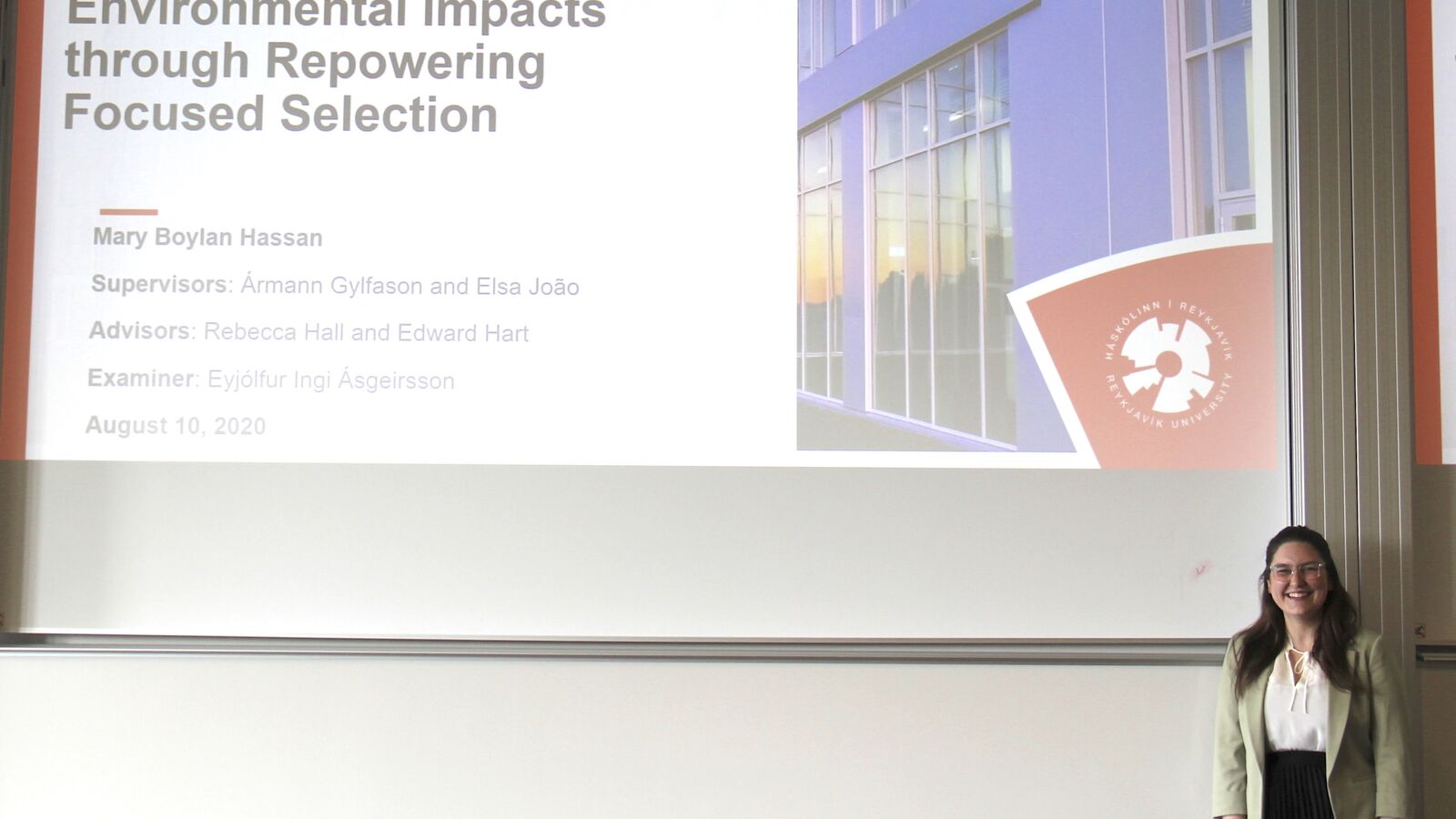MSc Thesis: Futureproof Offshore Wind Turbine Foundations – Reducing LCOE and Environmental Impacts through Repowering Focused Selection
REYKJAVIK, August 10 - MSc in Sustainable Energy Engineering candidate, Mary Boylan Hassan, successfully defended her master's thesis where she investigated how to future-proof offshore wind turbine foundations by reducing LCOE and environmental impacts through a re-powering focused selection process. Mary's research was supervised by Ármann Gylfason from Reykjavik University, as well as Elsa Joao, Edward Hart, and Rebecca Hall from the University of Strathclyde.

Mary states that offshore wind energy production has grown exponentially since its beginning in the early 1990s. As earlier installations had low power outputs (less than 1 MW) and low capacity factors (less than 30%), she explains, offshore farms were significantly less impactful than their onshore counterparts. Mary shares that in the UK, however, increased government funding and support has paved the way for greater presence of offshore wind farms in their electric grid infrastructure. Now that the UK has become the leader in offshore wind energy, many sites in English and Scottish waters are being examined for their potential large-scale installations (up to 1000 MW of installed power) while current installations are considerably greater than even a decade prior.
Setting the context of her research, Mary explains that with this expansion in both turbine and farm size, the end of life scenarios for offshore wind turbines become an increasingly critical analysis to make. All farms must eventually be decommissioned, but little is known about the ramifications to a project’s cost and the impact to the grid when a farm is taken offline. Mary stipulates that instead of the traditional method of decommissioning a farm after a 20-25 year lifetime, farms may benefit from a partial or full re-powering through turbine part replacements.
Mary goes on to explain how depending on the type of foundation chosen, costs and efficiencies can drastically change for a farm. Since foundations can account for roughly a quarter to a third of the project’s overall upfront costs, the selection for the right type of foundation is crucial for financial success. Foundation design and cost can drastically change depending upon the depth, bathymetry, sea conditions, and many other factors. The key to successful design, she points out, lies in how to extract the most energy while contending with high installation costs. Mary used the levelized cost of energy over various lifetime scenarios for different foundation types and analyzing vessel fuel usage, and identified why partial re-powering could be a wise choice for future large-scale installations, due to its low LCOE and moderate CO2 impact.
Congratulations Mary on an excellent thesis defence!
